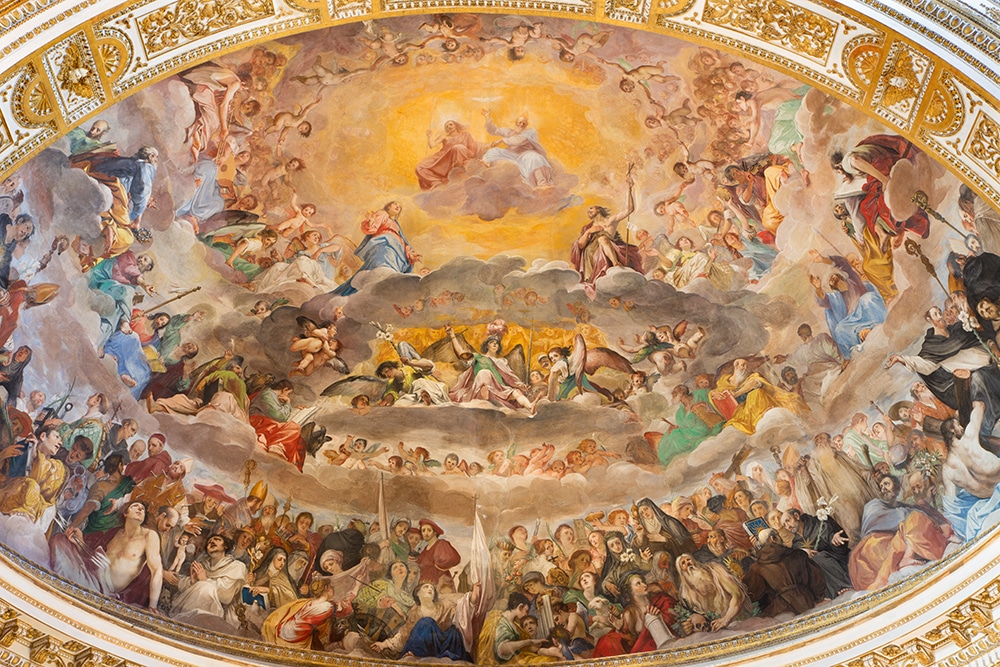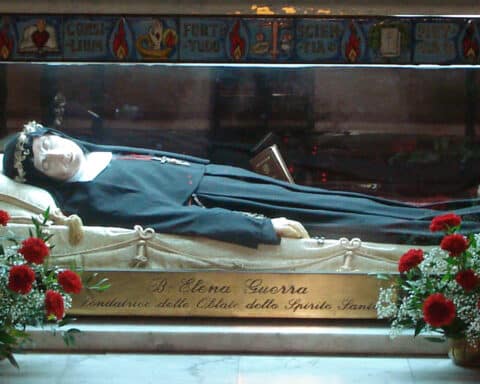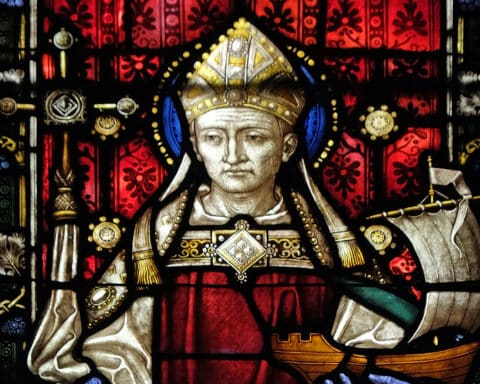
— Steve Anderson, via Email
Answer: As for going straight to heaven, there are some reasonable doubts that most attain to this without some sort of purification or purgation. Jesus says we must “be perfect, just as your heavenly Father is perfect” (Mt 5:48). The Book of Revelation also says regarding heaven, “But nothing unclean will enter it” (21:27). While it is true that many die in friendship with God, free of mortal sin, it is less likely that they die in a state of Godly perfection, with absolutely no impurity of any sort. Hence it makes sense that some purification is likely required for most of us after we die.
It is unclear from your question why you find this concept or the teaching on purgatory confusing. However, some Protestants have difficulty understanding it because they focus exclusively on the truth that the blood of Jesus cleanses us from all sin (cf. 1 Jn 1:7). This is true, but they tend to have a juridical or legalistic view of what that means by seeing it as a declared or imputed sinlessness rather than something that must actually be completed. In this way of thinking, we are said or declared to be free of all unrighteousness and sin, but not actually made so. Martin Luther epitomized most later Protestant theology when he spoke of our justification as a kind of “alien justice,” not a real one:
“It is not enough that sin is forgiven through grace, for through our infirmity we fall right back into sin. … Sin is remitted and forgiven by God, but still remains in the flesh. … This the prophet sees in himself as dung. … God wants to wipe out the sins as far as the forgiveness of their guilt … but not as far as the thing itself. … The Christian … is righteous and holy by an alien or foreign holiness” (Luther’s Works, vol. 26, pp. 327-328; translated by Jaroslav Pelikan).
So, in much of Protestant Reformation theology, we are said to be righteous or holy, but are not actually made so. God overlooks our sin, but it remains in us anyway. Hence, purgatory is meaningless to those who think this.
But Catholics believe that God can and actually does free us from sin and perfect us. Forgiveness is not just a legal declaration freeing us from prosecution, it is a grace unto ultimate perfection. Jesus is promising us that we will one day be perfect as the heavenly Father is perfect. So, if we die short of this goal, the Lord will accomplish it after our death in a final purification. St. Paul writes, “I am confident of this, that the one who began a good work in you will continue to complete it until the day of Christ Jesus” (Phil 1:6). So, purgatory spoken of elsewhere in Scripture (e.g. 1 Cor 3:13ff) makes sense and is not confusing to Catholic theology.
As for the second half of your question, Jesus is not coming back to earth to reign; he is coming to judge the living and the dead. Christ already reigns in heaven and is king of the universe, including this earth. It is true, Satan, the mere prince of this world, will be cast into hell and all disobedience with him. It is not certain how those who do not die before the second coming will fare. Will their purgation happen in an instance? We do not know, but it makes sense that it must happen if nothing impure can enter heaven (cf. Rv 21:27) and if heaven is the place of “the just made perfect” (Heb 12:23). Note that they are made perfect, not just said or declared to be perfect. Hence, it would seem that some purgation will be needed even for them.
Msgr. Charles Pope is the pastor of Holy Comforter-St. Cyprian in Washington, D.C., and writes for the Archdiocese of Washington, D.C. at blog.adw.org. Send questions to msgrpope@osv.com.





